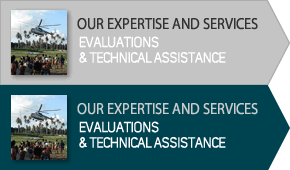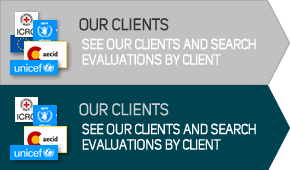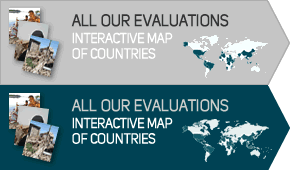The scale and breadth of DARA’s field research and evaluation work gives the organisation an unparalleled overview of what works well and what does not in aid – based on direct experience and evidence from the field:
Assessment of UK NGO and Synthesis on NGO Funding in the Response to the Tsunami EVAL
The Tsunami Evaluation Coalition (TEC) was created as an initiative to promote a comprehensive cross sector approach to evaluate the relief, reconstruction, and development aspects of the response to the Tsunami. The purpose of the TEC is to set up mechanisms [...] Read more...
Assessment of the International Donor Community’s Funding of the European Commission (ECHO) Sweden and UK in the Response to the Tsunami EVAL
The Tsunami Evaluation Coalition (TEC) was created as an initiative to promote a comprehensive cross sector approach to evaluate the relief, reconstruction, and development aspects of the response to the Tsunami. The purpose of the TEC is to set up mechanisms [...] Read more...
Workshops on Aid Harmonisation and Conflict Prevention in Burkina Faso. Elaboration of the Study “Towards a new Era in Development Aid: Building Effective Institutional Infrastructure in LCDs” EVAL
As part of UNDP’s Workshop on aid management tools, DARA reviewed the performance of the DAD database in Afghanistan and other applications such as DCAS, UNICEF’s, DevInfo, and the Egyptian Government’s DECODE. The Secretariat of Development Policy and [...] Read more...
Security and Defence Reform in Serbia and Montenegro EVAL
The program aimed to encourage and support senior elected officials and other civilian and military leaders in Serbia-Montenegro committed to undertaking critical reform issues. The Club of Madrid brought together experienced international leaders from among the [...] Read more...
Thematic Study of the Paris Declaration, Aid and Development Effectiveness
DARA's participation in the evaluation process of the Paris Declaration was a great opportunity to engage in one of the most important ongoing evaluation exercises in recent years. DARA provided the theoretical and conceptual evaluation framework for the second [...] Read more...




Share this